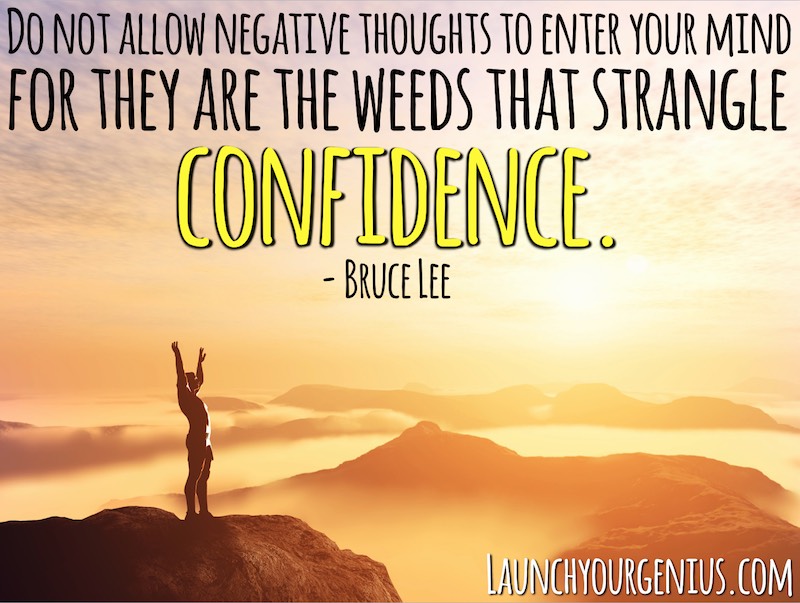
“You can search throughout the entire universe for someone who is more deserving of your love and affection than you are yourself, and that person is not to be found anywhere. You, yourself, as much as anybody in the entire universe, deserve your love and affection.”― Gautama Buddha
A quick dictionary search will return the meaning of self-esteem as confidence in one’s own worth. It is the confidence in one’s abilities or having a sense of self-respect.
Some of the synonyms of self-esteem are:
- Self-regard
- Self-assurance
- Faith in the self
- Morale
- Dignity
- Self-confidence
- Pride
People with high self-esteem have respect for themselves and appreciation for their own abilities. They like who they are as a person and what they stand for.
They feel good about themselves and their lives. They are more likely to experience relational, emotional, and material successes.
They own their own image and project a healthy self-confidence to the world. They do not easily back away from challenges and persevere in difficult situations. They are aware of their strengths and weaknesses and are not bogged down by negativity or a few of their own flaws.
They have trained themselves to make the most of any situation and come out smiling.
Having a good and healthy self-concept and self-esteem is important to live a life where we can thrive.
The truth is that we all know why having great self-esteem is important. But we often do not avoid some of the pitfalls that the foundations of self-esteem rely on.
What are some of the common pitfalls to avoid to have good self-esteem and high amounts of self-confidence?
Let us dive in! This is part-1 of the 3-part series on self-esteem.
“Trust yourself. Create the kind of self that you will be happy to live with all your life. Make the most of yourself by fanning the tiny, inner sparks of possibility into flames of achievement.” – Golda Meir
1. Not Keeping The ANTS in Check

“Do not allow negative thoughts to enter your mind for they are the weeds that strangle confidence.”- Bruce Lee
ANTS or Automatic Negative Thoughts are like unwanted guests in your mind. You may want them to leave your brain alone but you might be powerless against them.
ANTS are especially effective in situations where your self-esteem is shaky. When you face stress or anxiety or a conflict with another person, ANTS come flooding into the mind.
ANTS erode self-esteem because of automatic thoughts such as:
- I am not good enough.
- It must be my fault.
- Who am I to ask for more?
- I am invisible because…
- I do not deserve better.
How To avoid the ANT pitfall:
1. Become aware of ANTS and how they operate in your life.
2. Label your thoughts as negative or not. Make a choice to think positive.
3. Reframe the situation and the context that the negative thought is operating in.
4. Reaffirm an empowering response to automatic negative thoughts. For example: “I can never succeed” to “I can take action and I can be successful after a few attempts.”
5. Redirect negativity into taking action and allow it to be feedback towards greater excellence.
“It’s not that I don’t get anxious, or insecure, or have negative thoughts. It’s that each day I make the choice not to continue down those roads.”― Charles F. Glassman, Brain Drain, The Breakthrough That Will Change Your Life
2. Constant Comparison To Others, a Challenge to Self-esteem

“Personality begins where comparison leaves off. Be unique. Be memorable. Be confident. Be proud.”― Shannon L. Alder
Comparison is the thief of joy as Theodore Roosevelt so correctly declared. Unfavorable comparison erodes self-esteem.
This is because it compares your normal life to someone else’s best case scenario. Do you compare yourself to others and if you do not measure up, do you judge yourself?
Some comparison is inevitable because we are a comparing and discerning group. But if your comparison is making you feel bad and leaving you feeling depressed, it becomes a big pitfall on the path to great self-esteem.
How to avoid the trap of comparison:
1. Recognize and affirm your uniqueness.
2. Realize that you can never compare your unique situation to someone else’s. It is comparing apples and oranges.
3. Become aware of comparing the best case scenario of others with your worst case scenario.
4. Allow favorable and competitive comparison. Disallow comparison that makes you feel bad and decreases your self-esteem.
“Of all the judgments we pass in life, none is more important than the judgment we pass on ourselves”. – Nathaniel Branden
3. Turning a Mistake into a Big Snowball
“Tell me how a person judges his or her self-esteem and I will tell you how that person operates at work, in love, in sex, in parenting, in every important aspect of existence – and how high he or she is likely to rise. The reputation you have with yourself – your self-esteem – is the single most important factor for a fulfilling life.” – Nathaniel Branden
Do you allow yourself the leniency of making a mistake? Does your harshest critic some to the surface when you make a mistake and belittle you?
Part of the foundation of having high self-esteem is the ability and the flexibility to make mistakes and fail forward.
Are you making mistakes that turn into huge emotional and mental snowballs? Rest assured that those mistakes and the reactions to them are gnawing into your self-esteem.
How to avoid the snowball effect of mistakes:
1. Remind yourself that it is just a mistake and you are determined to do better next time. Always aim to do the best that you can do.
2. Understand that everyone makes mistakes at some point or another. What is important is what you are learning from that mistake.
3. Allow yourself to look and feel like a beginner if you take up a new hobby or activity.
4. Making Excuses For Everything
“There is a lie in between a promise and many excuses.”― Toba Beta
One of the pitfalls to avoid in the path to great self-esteem is the making and justification of excuses. Creative procrastination and some amount of avoidance are one thing.
But is your life punctuated with excuses and incompletions? Are excuses bringing you down? If they are then it is time to do something about this habit.
Incompletions as a result of excuses lower your energy. They decrease your levels of self-confidence.
They erode your belief and self-efficacy. You become unsure that you can effectively finish or take responsibility for things in your life.
It is worth noting that we all make excuses at some point or another. But it is another thing to live crisis to crisis as a result of a habit of excuses.
How to get past the habit of excuses:
1. Recognize procrastination and avoidance mechanisms that have transformed into the excuses habit.
2. Begin with a small incompletion and complete it or let it go.
3. Take prompt action and call out excuses. When you choose to get things done, you get a massive boost of self-esteem.
“I attribute my success to this – I never gave or took any excuse.”― Florence Nightingale
5. Not Taking Time to Recharge Your Batteries
“The greatest thing in the world is to know how to belong to oneself.” ― Michel de Montaigne
Are you among the people who just goes on and on without some self-care? Do you not stop to eat and hydrate yourself adequately?
When you lose sight of self-care, it becomes difficult to maintain self-esteem levels.
Do you stop to:
- Take care of you?
- Eat regularly and hydrate?
- Exercise and meditate?
- Take some personal time to charge yourself?
- Dress well and put in some thought about how you look?
- Plan your days and weeks with plenty of time to get to places so that you are not always in a tearing hurry?
You may not have the time to meditate, exercise or do yoga on a daily basis. But if you make it a habit to make a small and regular amount of time for radical self-care, your levels of self-respect will soar.
Not only will you have elevated energy levels but you will radiate with the glow of self-confidence. You tell the world that you are human and you need charging your personal power batteries.
“Self-care is never a selfish act—it is simply good stewardship of the only gift I have, the gift I was put on earth to offer to others.”– Parker Palmer
6. Undervaluing the Self And Overvaluing Others, A Quick Way to Undermine Self-esteem
“Until you value yourself, you won’t value your time. Until you value your time, you will not do anything with it.”― M. Scott Peck, The Road Less Traveled
A quick pitfall into poor self-esteem is having the wrong idea of value.
Many people do not seem to value themselves and the service and skills that they provide to the world. They undervalue their talents and their goals and vision and overvalue the talents and goals of others. This is a classic sign of low self-esteem.
The problem is that the more we do this behavior, the lesser our self-esteem becomes. Soon, we become apologetic for our self while over praising others.
What to do to avoid this value problem:
1. Do you have a problem selling things and selling your ideas to others? Become more comfortable with what you have to offer.
2. Remember that value is relative. If you have something valuable to offer like a tutoring skill, you are undervaluing yourself by charging the lowest possible rate.
3. When you value yourself, you will value your time and say no to unnecessary time sinks.
4. Begin believing that you have something valuable to offer. Recognize and promote your unique fusion of talents, passions, skills, and experiences.
7. Expecting The Worst In Every Situation
“Act as if what you do makes a difference. It does.” – William James
If you believe and expect the worst in every situation, you may actually end up finding it. Have you met people or had a friend who always sees the worst case scenario?
Some people always look and are successful in finding the worst of everything. This is because the worst and best case scenarios are often hypothetical. Sure, things can be worse but by that same logic, things can become or be a lot better too.
By a sore focus on what can go wrong only, we eliminate and tunnel vision possibilities that can happen.
We do this by selective focus and attention on things and situations that do not work out. We do this by always expecting the worst.
Research by Richard Wiseman has shown that people who had high expectations became more “lucky.”
People who did not expect much missed even cash rewards in plain sight in a research newspaper.
For a quick boost in self-esteem and confidence, widen your attention horizon. Widen your perspective to see other possibilities and positive outcomes. You may be surprised with the results.
8. Being Your Own Biggest Self-Critic and Judging Yourself
“Remember, you have been criticizing yourself for years and it hasn’t worked. Try approving of yourself and see what happens.”― Louise L. Hay, You Can Heal Your Life
This is like the ANTS that we discussed in #1 but there is nothing automatic about the inner self-critic. The inner self-critic is a role played by you to decrease your own self-esteem and self-respect.
This is because you do not think much of yourself. Your past may have primed you to believe that you are not worth it.
We have all had instances in the past where “well wishers” gave us unsolicited advice such as:
- You are not creative.
- You are careless.
- You are not worthy of this.
- You should not even try.
- You are lazy.
- You should be ashamed of yourself.
- What is wrong with you?
- You are not funny.
- Are you crazy?
- This is not for people like you.
- Don’t ruin it.
Often these overly critical words get internalized by us when we are most impressionable. These critical words become thoughts and then beliefs and feelings that we accept without question.
We are also told that you should be your own harshest critic and try to better. This tough self-love is all good if you are unaffected by words and beliefs.
But the sad reality for most of us is that we are more affected by the tone of voice, words, past beliefs and internalized voices of the critic that we care to admit or agree.
So what should we do?
1. Gently allow judgment to fall by the wayside.
2. Decide to support and bolster yourself up in difficult situations.
3. Like the great wisdom quote of Louise L. Hay, one of my dear teachers says, try to approve of yourself and see what happens.
9. Overanalyzing and Hyper focusing on Your Flaws And Deflecting Your Strengths
“Trust yourself. Create the kind of self that you will be happy to live with all your life. Make the most of yourself by fanning the tiny, inner sparks of possibility into flames of achievement.” – Golda Meir
A quick way to fall into the trap of low self-esteem is to hyper focus on your flaws. Many of us inadvertently deflect praise and good cheer that comes our way. Have you heard the following:
- Oh, it is not a big deal.
- Anyone could have done it.
- I am not that special.
- Never mind, let us talk about something else.
- It is not so difficult.
Or perhaps you just become silent while you are thinking that what you did was not deserving of the fame and the praise that you have received. This is a classic sign of deflection.
When we are low on the reserves of self-esteem, our flaws get under a magnifying glass. Ironically, our strengths become tiny and disappear.
In comparison to the Goliath of a few flaws, past experience and current strengths look small like David.
This hyper focus naturally promotes what is called tunnel visioning where your acute focus is on the flaw at hand.
What to do?
1. Broaden your perspective to include your strengths. Shake your attention away from tunnel visioning on the flaws.
2. Realize that you might be doing all or nothing thinking. It could be a flaw or nothing at all.
3. List your strengths and see them often.
4. Allow others to praise you and feel good about the kind words instead of deflecting them.
5. Remind yourself that everyone has flaws and strengths. Which would you focus your precious time and attention on? A few flaws or your great strengths?
This is the end of part-1. Read Part-2 here. Please let me know in the comments and on social media about how you enhance and maintain your self-esteem.




Comments